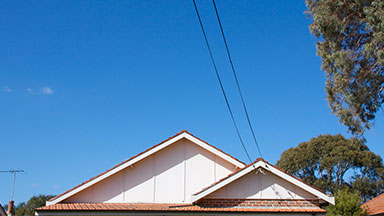There’s more to buying property than the purchase price. Manage your budget by understanding the extra costs involved.
Buying a property is a big expense – quite possibly the largest of your life. But many potential homeowners aren’t aware of just how long the bill may run. A raft of additional costs will accompany the purchase price asked by the vendor. So, before you sign a contract of sale or make a bid, it’s a good idea to understand all your ‘hidden’ out-of-pocket costs – both before and after the sale
On top of your legal fees, expect to be charged for out-of-pocket expenses involved in the process, like title searches and various council certificates.

Pre-purchase research
Rising damp, cracked walls, termites… a building and pest inspection can uncover a lot of bad news about a property. Once you’re serious about buying a property, consider obtaining a qualified, independent contractor’s report. Note that this will likely cover only major structural issues, not minor defects. The report could cost you between $400 and $1,000, depending on the size and location of the property. Your solicitor or conveyancer may be able to help you find suitable inspectors. If you’re looking at buying an apartment, you should also obtain a strata inspection report, which details the financial position of the strata scheme and can alert you to any major works on the cards.
Conveyancing and legal fees
From reviewing a contract of sale to transferring the legal title of a property into your name, engaging a solicitor or conveyancer is a necessary step in the home-buying process. The amount you spend on their services will vary depending on the location of the property and the complexity of the terms of sale. On top of your legal fees, expect to be charged for out-of-pocket expenses involved in the process, like title searches and various council certificates. Your conveyancer can share a schedule of fees before you proceed.
Council and utility rates
The conveyancing process allows you to discover any outstanding council and water rates when you buy a home. The buyer and seller share these costs in proportion to the length of time each party owns the property during the rates period. For example, if your property sale goes through in January, you would be responsible for approximately 50% of the rates in that financial year. The same applies for strata rates. Make sure you budget for a pro-rated amount of your expected utility costs, to pay upfront. In addition, electricity reconnection fees may be charged by some utility companies – this is approximately around $601.
Stamp duty
This is a government tax that buyers pay on a property purchase. The amount you need to hand over is usually calculated based on the price of the property using a sliding scale according to the relevant state or territory, and in some states, is based on whether you intend to live in the property or use it as an investment. This amount may also vary depending on whether you’re a first-time buyer. Use an online stamp duty calculator to better understand your liability.
Mortgage registration and transfer fees
Mortgage and transfer registrations are additional one-off fees charged by state and territory governments. They’re designed to cover the government’s costs for registering the property as security on your home loan and transferring the title of the property into your ownership. The amounts vary by state or territory– often under $1,000 each. For more information, look up the land titles or land registry office in your state or territory.
Loan application or establishment fee
There may be one-off payments to your lender at the start of the loan, to cover administration associated with setting up your loan. For full featured loans, also known as ‘packaged loans’, your lender may also charge an annual package fee which provides access to additionalbenefits such as a discounted interest rate, offset accounts, and discounts on other products as well. Some of these costs may be rolled into the value of your loan.
Home and contents insurance
You’ve just made an important purchase, so you want to protect it, right? This is where home and contents insurance comes in, with annual rates impacted by factors such as your desired level of cover, home security and whether the home is owner-occupied.
Other hidden costs of buying a home
Other potential costs depend on whether you want to be hands-on or you’d prefer to have someone else do the heavy lifting. These could include a buyer’s agent to help you find the perfect home, landscaping and repairs, a fresh coat of paint or hiring removalists for moving day.

The pros and cons of rentvesting
30 October 2024 | Property Renting an investment property while continuing to pay a mortgage where you live…how does that work? We unpack this property strategy and explore the pros and cons of maintaining your lifestyle while investing in a more affordable suburb. Read more
Tax time checklist for property investors
17 June 2024 | Blog If you have an investment property, here are some tips to help you prepare at tax time Read more
8 tips to get a harder-working home loan
14 June 2024 | Blog There are many ways you can get your home loan to work harder – from setting up an offset account to reduce the interest you pay, to consolidating your debt. No matter what package you have, you can take control of your repayments and build your financial resilience. Read moreWhat you need to know
The credit provider for all banking products is AMP Bank Limited ABN 15 081 596 009, AFSL and Australian Credit Licence 234517.
Any advice and information is provided is general in nature. It hasn’t taken your financial or personal circumstances into account.
It’s important to consider your particular circumstances and read the relevant product disclosure statement, Target Market Determination or terms and conditions, available from AMP at amp.com.au, or by calling 13 30 30, before deciding what’s right for you. You can also email us at info@ampbanking.com.au.
You can read our Financial Services Guide online for information about our services, including the fees and other benefits that AMP companies and their representatives may receive in relation to products and services provided to you. You can also ask us for a hardcopy.
All information on this website is subject to change without notice.